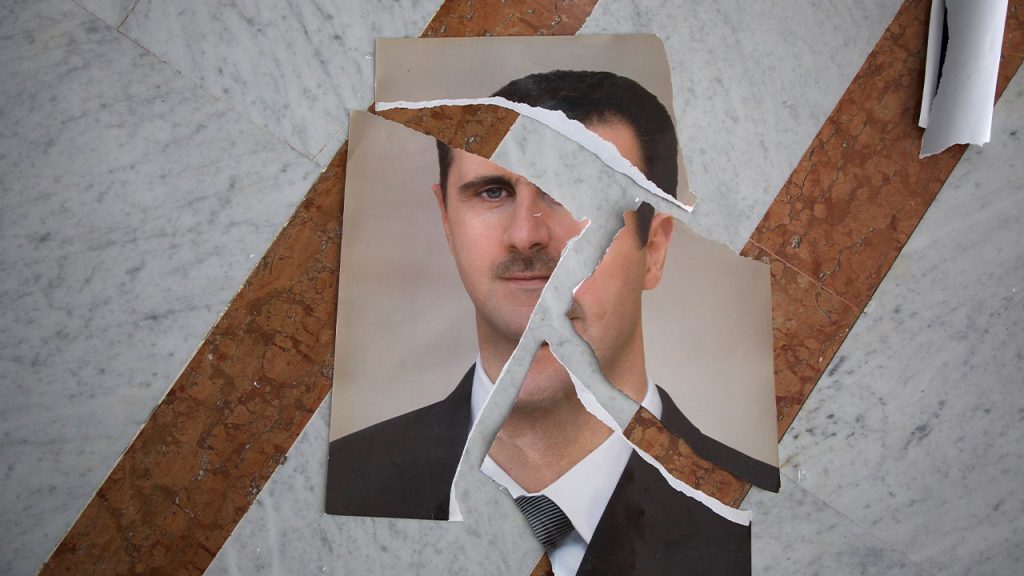The downfall of Bashar al-Assad’s regime in Syria has unveiled a horrifying network of political prisons and torture centers, exposing the extent of the brutality inflicted upon Syrian citizens during his reign. As victorious rebels gained control, they opened the doors to these prisons, revealing a grim reality of mass incarceration, torture, and extrajudicial killings. Thousands of Syrians rushed to these facilities, desperately seeking their missing loved ones, with some finding freedom while others discovered the remains of the deceased. The fate of many remains unknown, leaving families grappling with uncertainty and grief. Saydnaya Prison, a notorious symbol of Assad’s repression, became a focal point for these searches, its labyrinthine structure a testament to the regime’s efforts to conceal its crimes.
The scale of the atrocities committed within Saydnaya and other detention centers is staggering. Tens of thousands are believed to have passed through Saydnaya alone, with estimates suggesting that between 10,000 and 20,000 were held there as recently as 2017. Reports of routine mass executions paint a chilling picture of systematic extermination within the prison walls. The desperation of families searching for their missing relatives underscores the widespread impact of Assad’s policies, touching nearly every household in Syria. The sheer number of disappeared – estimated at 150,000 since 2011 – highlights the systemic nature of the repression.
The international community has begun to hold individuals accountable for these crimes against humanity. U.S. prosecutors have indicted two Syrian officials, Jamil Hassan and Abdul Salam Mahmoud, for their roles in operating a torture facility at Mezzeh air force base in Damascus. Hassan, as director of the Syrian air force’s intelligence branch, is accused of overseeing the prison, while Mahmoud is alleged to have managed its day-to-day operations. The charges include torture of political prisoners, peaceful protesters, and even a young American woman who is believed to have been executed. These indictments represent a crucial step towards justice for the victims and send a message that such abuses of power will not be tolerated.
Meanwhile, rebel leader Abu Mohammed al-Golani has pledged to dismantle the remaining security apparatus of the Assad regime and close the political prisons, signaling a commitment to a new era of justice and accountability. The fall of Assad’s regime has created a complex geopolitical landscape, with various actors vying for influence in the region. The former president’s flight to Moscow and subsequent grant of asylum by Russia further complicates the situation. The involvement of international powers underscores the broader implications of the Syrian conflict and the challenges that lie ahead in rebuilding the nation.
The liberation of these prisons provides a chilling glimpse into the inner workings of Assad’s repressive machinery. The stories emerging from these facilities are harrowing, detailing systematic torture, inhumane conditions, and widespread disappearances. The emotional toll on Syrian families is immeasurable, as they grapple with the trauma of lost loved ones and the uncertainty surrounding the fate of those who remain missing. The testimonies of those who survived these prisons provide crucial evidence of the regime’s crimes and are essential for ensuring accountability and achieving justice.
The task of rebuilding Syria and healing the deep wounds inflicted by years of conflict is monumental. The physical and psychological scars of the Assad regime’s repression will endure for generations. Addressing the trauma experienced by so many Syrians, providing support to the families of the disappeared, and bringing perpetrators to justice are essential steps in the long and arduous process of national reconciliation. The international community must remain engaged in supporting Syria’s transition to a more democratic and just future, ensuring that those responsible for the atrocities committed during the conflict are held accountable and that the voices of the Syrian people are heard.


